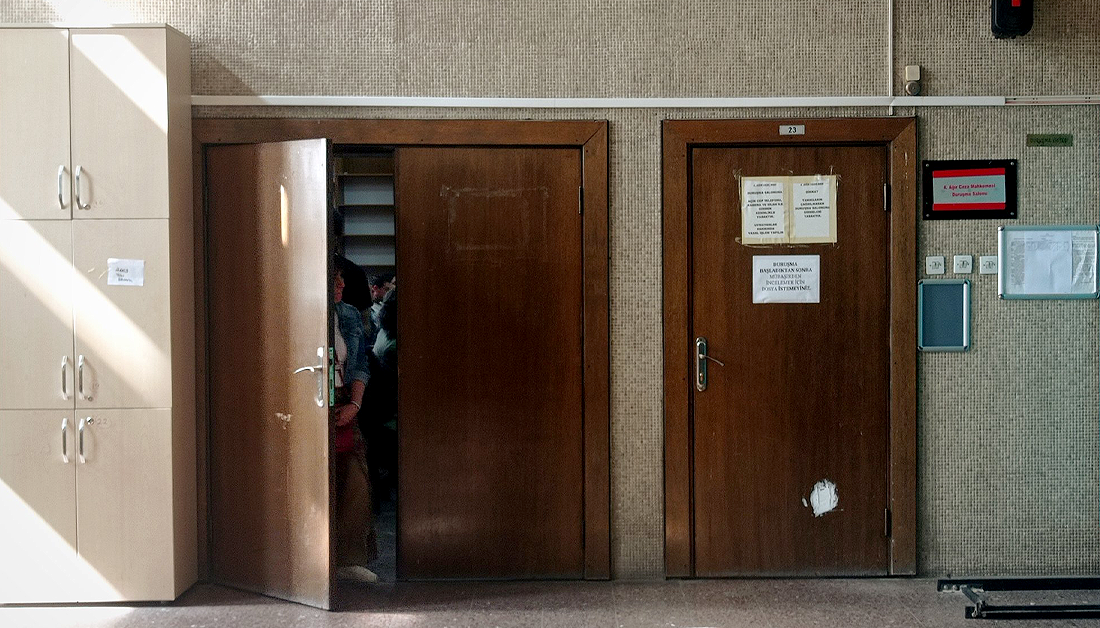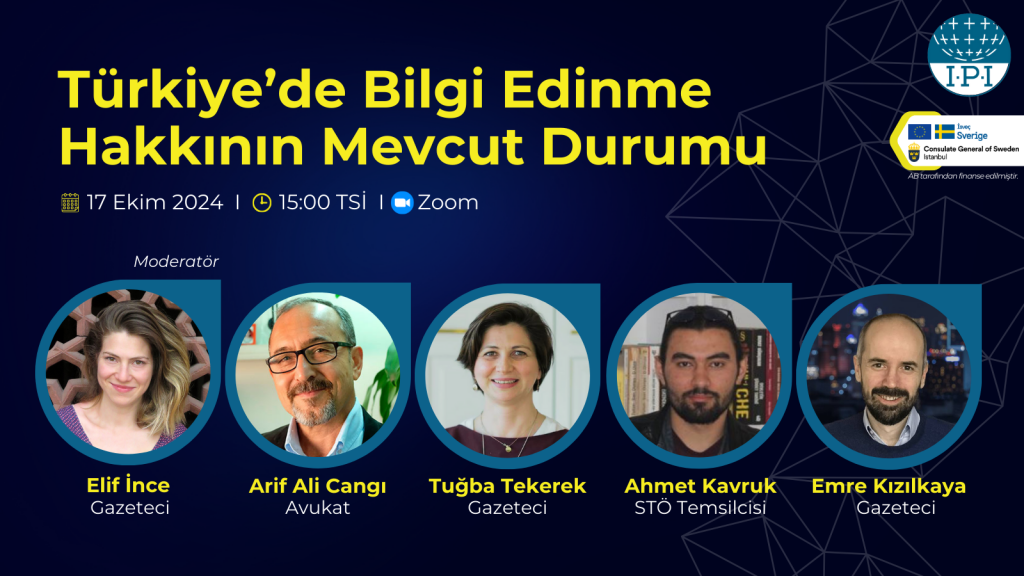On May 16, 2023, a representative of the International Press Institute (IPI) attended and monitored the trial of 11 journalists charged with “membership in a terrorist organization” as part of IPI’s Turkey trial monitoring programme. The hearing took place at the Ankara 4th High Criminal Court with the prosecution seeking prison sentences of up to 15 years for each of the journalists, cumulatively amounting to a total of 165 years of incarceration.
In the 210-page indictment, the journalists were accused of being members of the PKK, which is recognized by Turkey and the European Union as a terrorist organization. The indictment treats routine journalistic work as evidence of terrorist activity, including the news articles produced by these journalists, to which the indictment refers as “so-called news pieces”.
Nine of the defendants work for the pro-Kurdish media outlet Mezopotamya Agency (MA) while the other two are reporters for another pro-Kurdish news outlet, Jin News (“Women’s News”). The list of defendants is as follows: Diren Yurtsever (MA editor-in-chief), Deniz Nazlım (MA reporter), Berivan Altan (MA reporter), Selman Güzelyüz (MA reporter), Hakan Yalçın (MA reporter), Emrullah Acar (MA reporter), Ceylan Şahinli (MA reporter), Zemo Ağgöz Yiğitsoy (MA reporter), Mehmet Günhan (MA intern), Habibe Eren (Jin News reporter), Öznur Değer (Jin News reporter). All except Yiğitsoy and Günhan were held in pre-trial detention for 201 days after their arrest on October 29, 2022.
Alongside IPI, the trial was monitored by representatives from the Committee to Protect Journalists (CPJ), Dicle Fırat Journalists’ Association (DFG), Human Rights Association (İHD), Human Rights Foundation of Turkey (HRFT), Journalists’ Union of Turkey (TGS), Media and Law Studies Association (MLSA), Mesopotamia Women Journalists Platform (MKGP), Kaos GL, Progressive Journalists Association (ÇGD), Reporters Without Borders (RSF) and other civil society representatives, academics, journalists and members of the public.
The hearing began at 10:20 in one of the largest court rooms of the capital’s main court of justice. Despite its size, the room was overcrowded with spectators. Several law enforcement officers were positioned between the open dock and the public gallery.
Two of the defendants, Değer and Acar, delivered their statements in Kurdish with the assistance of a translator entrusted by the court. The rest of the defendants proceeded with their statements in Turkish. The presiding judge frequently interrupted the defendants, most notably with questions such as “Is your employer affiliated with the PKK?” and “Have you reported news undermining the PKK?” One can say that these questions reveal a cynical view of journalism in Turkey’s judiciary, namely that journalism is undertaken to serve the interests of specific groups.
All 11 defendants rejected the charges brought up against them by the prosecution, arguing that the accusations are devoid of substance and are politically motivated. They stressed that, as the prosecution cites routine journalistic work as evidence of terrorism-related activities, this case constitutes an attempt to criminalize journalism itself. Several of the defendants argued that the prosecution’s indictment is laden with abstract accusations, manipulative expressions, and cherry-picked news articles presented as evidence. One defendant, Değer, stated that she was tortured while in detention.
Although each defendant was represented by their own separate attorneys, the constraint of time led to the lawyers choosing Resul Temur from among them to present the final closing statement for the defence. Among several of Temur’s arguments was that the defendants are being prosecuted for their critical coverage of the state and its actions. Moreover, he asserted that the charge of “membership in a terrorist organization” is not a valid justification for arresting citizens, citing a Constitutional Court ruling from February 7, 2022. (In this ruling, the Constitutional Court found the arrest of journalist Cemil Uğur under the “Helicopter Case” unlawful, unanimously concluding that “journalists cannot be arrested on the grounds of the organization they work for”.) Temur demanded the release of the journalists.
After a brief recess, the court pronounced its provisional ruling, granting the release of the 11 journalists until their next trial scheduled for July 5, 2023. The court requested three witnesses, one of whom is an anonymous witness, to be summoned at the next hearing. The court also requested an inquiry to be conducted into the media outlets MA and Jin News.
IPI will continue to monitor journalism in Turkey on trial. In addition to demonstrating solidarity with journalists facing repression, we seek to remind Turkish authorities of their obligations to respect and protect media freedom under international and domestic law.
For IPI’s previous trial observations, please click here.




